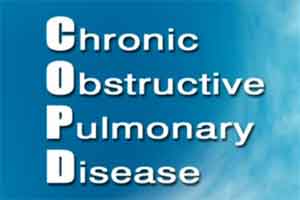- Home
- Editorial
- News
- Practice Guidelines
- Anesthesiology Guidelines
- Cancer Guidelines
- Cardiac Sciences Guidelines
- Critical Care Guidelines
- Dentistry Guidelines
- Dermatology Guidelines
- Diabetes and Endo Guidelines
- Diagnostics Guidelines
- ENT Guidelines
- Featured Practice Guidelines
- Gastroenterology Guidelines
- Geriatrics Guidelines
- Medicine Guidelines
- Nephrology Guidelines
- Neurosciences Guidelines
- Obs and Gynae Guidelines
- Ophthalmology Guidelines
- Orthopaedics Guidelines
- Paediatrics Guidelines
- Psychiatry Guidelines
- Pulmonology Guidelines
- Radiology Guidelines
- Surgery Guidelines
- Urology Guidelines
Use of beta-blockers in COPD not associated with exacerbation risk

USA: The use of cardioselective beta-blockers is not associated with an increase in chronic obstructive pulmonary disease (COPD), according to a recent review published in the journal Annals of Pharmacotherapy.
The prescribing information of beta-blockers, currently, contains warning about its use in patients having a bronchospastic disease. The labelling states that -- bronchospastic disease patients should not receive beta-blockers, and if cardioselective agents are used (in those who do not tolerate other antihypertensive medications), bronchodilators should be readily available, as beta1-selectivity is not absolute.
Tracey L. Mersfelder, and Dane L. Shiltz, from Ferris State University College of Pharmacy, Grand Rapids, MI, USA reviewed the rate of exacerbations relative to β-blocker use in patients with COPD.
For the purpose, the researchers searched the online databases for studies that assessed COPD exacerbation rates in patients on beta-blocker therapy. A total of 15 articles were included, out of which:
- 7 articles showed no change
- 1 provided mixed results,
- and 7 indicated a significant decrease in COPD exacerbations in a variety of exacerbation severities.
- Two of the studies differentiated between cardioselective and noncardioselective β-blockers.
In their discussion, the authors stated that while the review was limited by the number of studies, the available evidence does indicate that cardioselective beta-blockers do not increase exacerbation rates in patients with COPD, and may even decrease them. “These findings raise the question of whether beta-blockers should be used more frequently in patients with COPD,” they added. Given that their study was only an initial assessment of this relationship, the authors advocated for completing controlled trials to further analyze this association.
Based on their findings, the study authors concluded that “Given the likelihood for CVD in the COPD population, these agents should not be withheld for concurrent cardiovascular conditions, especially where mortality benefit (eg, systolic HF, recent MI) has been established.”
To read the complete study log on to https://doi.org/10.1177/1060028019862322

Disclaimer: This site is primarily intended for healthcare professionals. Any content/information on this website does not replace the advice of medical and/or health professionals and should not be construed as medical/diagnostic advice/endorsement or prescription. Use of this site is subject to our terms of use, privacy policy, advertisement policy. © 2020 Minerva Medical Treatment Pvt Ltd